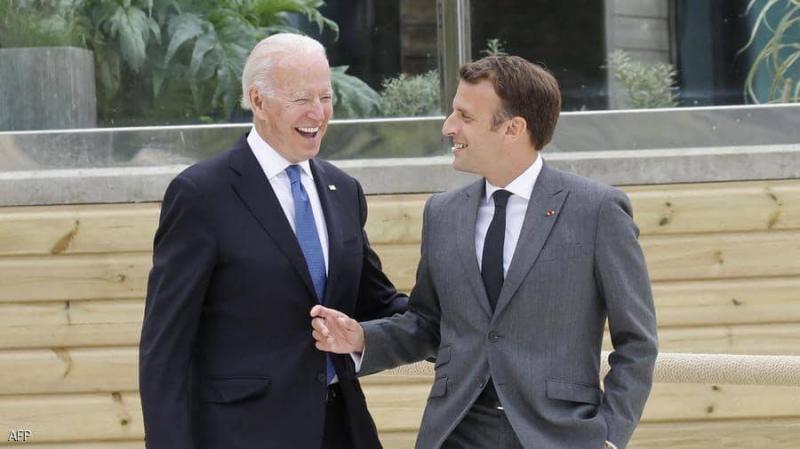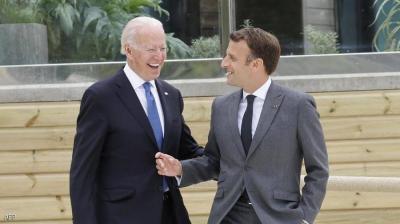U.S. President Joe Biden will meet with French President Emmanuel Macron on Friday, marking their first meeting following severe diplomatic tension caused by Paris's loss of a submarine deal with Australia due to a security alliance with Washington. The White House announced that Biden will meet Macron in Rome ahead of the G20 summit in Italy scheduled for the following Saturday.
The meeting comes as Washington attempts to mend ties after a major diplomatic fallout with France due to a strategic partnership announced by the United States, the United Kingdom, and Australia that led Canberra to cancel a contract to purchase French submarines. This crisis prompted the U.S. and French presidents to have phone conversations in recent weeks, and recently an official from the Élysée Palace revealed that the French ambassador to Australia will return to Canberra at an unspecified future date.
France recalled its ambassadors from Washington and Canberra in mid-September after Australia struck a deal with the U.S. and the U.K. (AUKUS alliance), which resulted in the cancellation of a $40 billion contract for French-designed submarines. French Foreign Minister Jean-Yves Le Drian described Australia's decision to cancel the $40 billion deal with France's Naval Group to build a fleet of conventional submarines as a "stab in the back."
The tension between Australia and France comes as the U.S. and its allies seek additional support in the Asia-Pacific region amid concerns over China's rising influence. U.S. officials are working to smooth things over with France; earlier this month, Secretary of State Antony Blinken visited Paris and held a bilateral meeting with Macron.
**Bridging Differences**
International relations professor Tarek Fahmy stated that there will be an effort to leap over the French-American issues and that there will be attempts to align perspectives, but economic and strategic problems will remain. Fahmy remarked in an interview with "Sky News Arabia" that "France has incurred losses, but it has managed to compensate in alternative markets, while there will be a message to the Americans that the alliance will impact European security stability and the overall U.S.-European relationships."
**Three Main Files**
International relations professor Jihad Awda noted that there are three main topics on the agenda for the Biden-Macron meeting following what he described as the "cooling of relations" due to the submarine crisis. Awda added in statements to "Sky News Arabia" that the meeting will include discussions on strengthening transatlantic relations and ways to develop them, especially after AUKUS, as well as addressing growing Russian and Chinese influence in the Indian and Pacific Oceans.
The third topic will cover several issues including the situation in Afghanistan and developments in Africa, especially the Sahel and Sahara, where France seeks to enhance U.S. support for anti-terror operations led by European countries. He noted that the French elections are approaching, and Macron will aim to contain the crisis with the U.S. and secure economic gains that would boost his popularity, whether through U.S. support in the Sahel and Sahara or in other areas.




